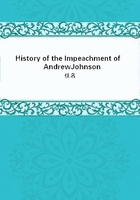
第6章 THE PROBLEM OF RECONSTRUCTION.(5)
To avoid misunderstanding, it may be proper to say, that whether members sent to Congress from any State shall be admitted to seats, constitutionally rests exclusively with the respective houses, and not to any extent with the Executive. And still further, that this proclamation is intended to present to the people of the States wherein the National authority has been suspended; and loyal State governments have been subverted, a mode in and by which the National authority and loyal State governments, may be re-established within said States, or, in any of them; and while the mode presented is the best the Executive can suggest, with his present impressions, it must not be understood that no other possible mode would be acceptable.
Given under my hand at the City of Washington, the eighth day of December, in the year of our Lord one thousand eight hundred and sixty-three, and of the Independence of the United States of America, the eighty-eighth.
[L. S.]
By the President: Abraham Lincoln.
William H. Seward, Secretary of State.
How the revolted States could be most successfully and expeditiously restored to their constitutional relations to the Union on the cessation of hostilities, was the momentous question of the hour, upon which there were views and schemes as varied and antagonistic as were the mental differences and political disagreements of those who felt called upon to engage in the stupendous work. As history had recorded no similar conditions, and therefore no demand for the solution of such a problem, there were no examples or historic lights for the guidance of those upon whom the task had fallen.
It is apparent that Mr. Lincoln maintained the indestructibility of the States and the indivisibility of the Union--that the resolutions of secession were null and void, and that the States lately in rebellion were never in fact but only in theory out of the Union--that they retained inherently, though now dormant, their State autonomy and constitutional rights as before their revolutionary acts, except as to slavery, and that all their people had to do, to re-establish their former status, as he declared to the Emperor of the French when that potentate was about to recognize the Confederacy, was to resume their duties as loyal, law-abiding citizens, and reorganize their State Governments on a basis of loyalty to the Constitution and the Union. The terms he proposed to formally offer them were first illustrated in the case of Louisiana, early in 1863, and later in the foregoing Message and Proclamation; and clearly indicated what was to be his policy and process of reconstruction.
Messrs. Flanders and Hahn were admitted to the House of Representatives as members from Louisiana agreeably to the President's views thus outlined. They had been chosen at an election ordered by the Governor of the State (Gov. Shepley), who had undoubtedly been permitted, if not specially authorized by the President, to take this step, but they were the last to be received from Louisiana under Mr. Lincoln's plan, as the next Congress resolved to receive no more members from the seceded States till joint action by the two Houses therefor should be had.
Prior to the election at which these gentlemen were chosen, Mr.
Lincoln addressed a characteristic note to Gov. Shepley, which was in effect a warning that Federal officials not citizens of Louisiana must not be chosen to represent the State in Congress, "We do not," said he, referring to the South, "particularly need members of Congress from those States to get along with legislation here. What we do want is the conclusive evidence that respectable citizens of Louisiana are willing to be members of Congress and to swear support to the Constitution, and that other respectable citizens are willing to vote for them and send them.
To send a parcel of Northern men as Representatives, elected, as would be understood, (and perhaps really so) at the point of the bayonet, would be disgraceful and outrageous."Mr. Lincoln would tolerate none of the "carpet-bagging" that afterwards became so conspicuous and offensive under the Congressional plan of Reconstruction.
These steps for reconstruction in Louisiana were followed by the assembling of a convention to frame a new constitution for that State. The convention was organized early in 1864, and its most important act was the prompt incorporation of an antislavery clause in its organic law. By a vote of 70 to 16 the convention declared slavery to be forever abolished in the State. The new Constitution was adopted by the people of the State on the 5th day of the ensuing September by a vote of 6,836 in its favor, to 1,566 against it. As the total vote of Louisiana in 1860 was 50,510, the new government had fulfilled the requirement of the President's Proclamation. It was sustained by more than the required one-tenth vote.
In a personal note of congratulation to Gov. Hahn, of Louisiana, the President, speaking of the coming convention, suggested that "some of the colored people be let in, as for instance, the very intelligent, and especially those who have fought gallantly in our ranks." "They would," said he, "probably help in some trying time in the future TO KEEP THE JEWEL OF LIBERTY IN THE FAMILY OFFREEDOM."This action in regard to Louisiana was accompanied, indeed in some particulars preceded, by similar action in Arkansas. AGovernor was elected, an anti-slavery Constitution adopted, a State Government duly installed, and Senators and Representatives in Congress elected, but were refused admission by Congress. Mr.